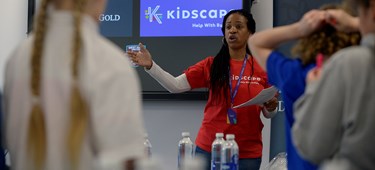Ofsted Review of sexual abuse in schools and colleges – what do we need to know?

On 10th June, 2021, Ofsted published a review of sexual abuse in schools and colleges. They visited 32 schools and colleges and consulted with 900 children and young people. They found that the frequency of harmful sexual behaviours means that some children and young people consider them normal.
Prevalence of sexual abuse
92% of girls, and 74% of boys, said sexist name-calling happens a lot or sometimes to them or their peers. Unwanted touching, 64% for girls and 24% for boys, rumours about sexual activity, 92% for girls and 53% for boys, being put under pressure to provide sexual images of themselves, 80% for girls and 40% for boys.
‘Slag’ and ‘slut’ were commonplace and many felt staff were not aware of this language, dismissed it as ‘banter’ or were not prepared to tackle it.
Homophobic and transphobic insults were mentioned as issues in several schools.
Professionals consistently underestimated the prevalence of online sexual abuse.
Where it is happening
The behaviour was most likely to happen in unsupervised places such as parties or parks, but girls also reported incidents in school corridors and journeys to and from school.
Fear of reporting
Children were reticent to report incidents to staff for fear of being ostracised by their peers, getting them in trouble, or worried about how adults would react. There was a real lack of understanding of what would happen if they reported.
Negative experiences of relationships and sex education
Children had very negative experiences of relationships and sex education and were largely turning to one another and social media for advice. Children said they would be most likely to talk to a friend.
Ofsted recommendations for schools
Assume that sexual harassment and online sexual abuse are happening in your setting.
Put in place a whole-school approach that includes:
- a carefully sequenced RSHE curriculum, based on the Department for Education’s (DfE’s) statutory guidance, that specifically includes sexual harassment and sexual violence, including online. This should include time for open discussion of topics that children and young people tell us they find particularly difficult, such as consent and the sending of ‘nudes’
- high-quality training for teachers delivering RSHE
- routine record-keeping and analysis of sexual harassment and sexual violence, including online, to identify patterns and intervene early to prevent abuse
- a behavioural approach, including sanctions when appropriate, to reinforce a culture where sexual harassment and online sexual abuse are not tolerated
- working closely with Local Safeguarding Partners (LSPs) in the area where the school or college is located so they are aware of the range of support available to children and young people who are victims or who perpetrate harmful sexual behaviour
- support for designated safeguarding leads (DSLs), such as protected time in timetables to engage with LSPs
- training to ensure that all staff (and governors, where relevant) are able to:
- better understand the definitions of sexual harassment and sexual violence, including online sexual abuse
- identify early signs of peer-on-peer sexual abuse
- consistently uphold standards in their responses to sexual harassment and online sexual abuse
Kidscape recommended resources for schools
Government guidance
Keeping children safe in education: Statutory guidance for all schools and colleges in England.
Other guidance
Anti-Bullying Alliance, Sexual Bullying: Developing Effective Anti-Bullying Practice
Peer on peer abuse toolkit, Farrer & Co (2017)

